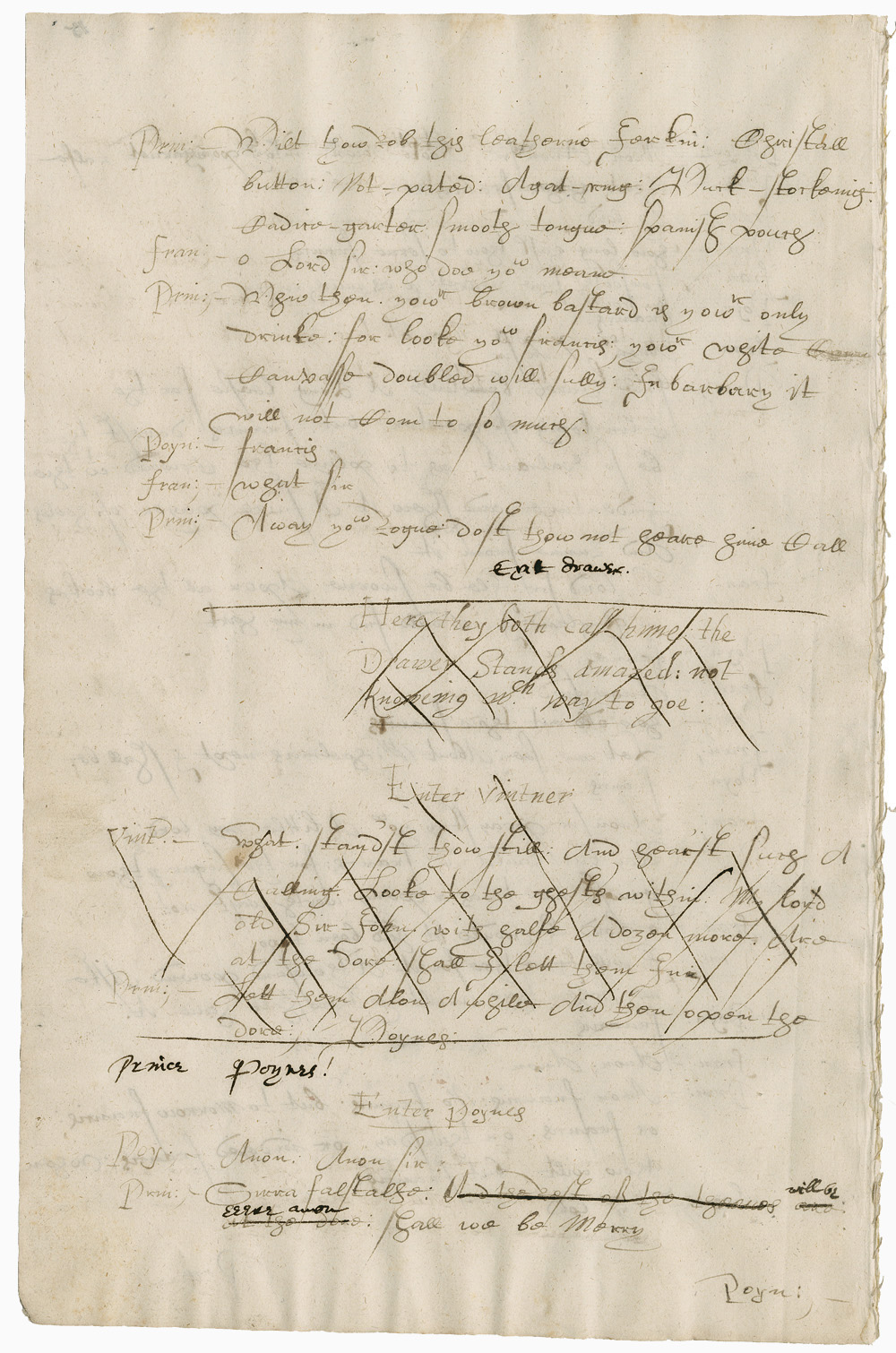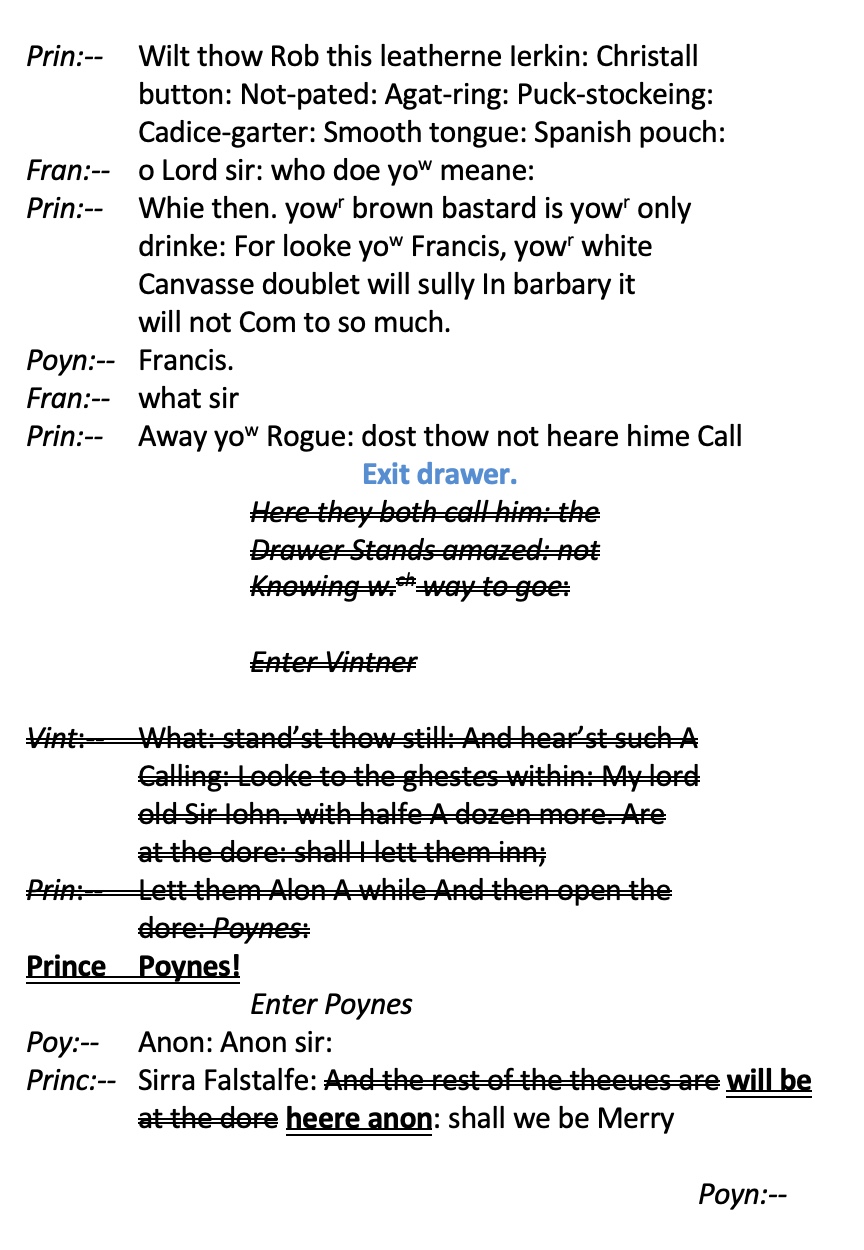3.2 Revising the Transcript
Dering’s initial mark-up of the quartos copied by Carington can be reconstructed only speculatively. Dering’s review of the transcript after Carington returned it to him can be studied in its actuality as inscription in the document. He was careful with respect to textual detail, but its main purpose was to introduce further cuts and to review the practicalities of staging.
Here is a particularly conspicuous example:


In keeping with his wider strategy while preparing the adaptation, in this passage Dering eliminates a minor role, the Vintner. Two stage directions, one of them the Vintner’s entry, and two speeches, one of them the Vintner’s speech, are heavily deleted. Beyond this, Dering tidies up the action. He writes above the main deletion, “Exit drawer.”, supplying a direction for necessary action that was missing in the printed quarto: early modern playbooks were often deficient in supplying exits for minor characters. Below, Dering’s added “Prince Poynes!” repeats the speech prefix and the last word of the second deleted speech. Dering made a further alteration at the foot of the page, replacing “And the Rest of the theeues are at the dore” with “will be heere anon”, so that the Prince’s “Sirra falstalfe: And the Rest of the theeues are at the dore” now reads “Sirra falstalfe: will be heere anon”. The expectation that Falstaff will enter with a group of companions is removed.
When Dering first prepared the quarto copy in anticipation of Carington’s transcription from it, he had seen no need for these alterations. It is easy to imagine why he kept this exchange in the first place. It is the culminating moment in the teasing of Francis the drawer. He “Stands amazed: not knowing which way to goe”, and after all his rushing to and fro he is thus discovered by his boss apparently doing nothing. If the Vintner does not enter, there is little point in having Francis stand in frozen confusion. The lines deleted in the final alterations also establish a second and related piece of comic business, whereby Falstaff and no less than “halfe a dozen” companions are for a few moments refused admission to the tavern and its solace.
Hypothetically, Dering might have found some way of making Poins announce the arrival of Falstaff and his companions at the door. But he did not do so. Instead, the Prince himself announces that Falstaff “will be heere anon”. Though less effective dramatically, this allows one last articulation of the “anon” joke on which the taunting of Francis has been based. But the main reason to make these alterations is clearly that they save on minor roles.
Dering’s Original Contribution
Dering usually engages with Henry IV as adapter and redactor. However, he introduced a few changes of wording that might be described as “literary”, and he added a few lines to the opening and closing speeches of the play. In order to understand Dering’s book-ending interventions, they need to be placed in the religious and political history of the moment. Discussion is therefore reserved for a separate section examining the context of Dering’s adaptation.
PREVIOUS: Learn about how Dering annotated the quarto editions of Henry IV.
NEXT: Examine the question of how Dering put the transcript together.
